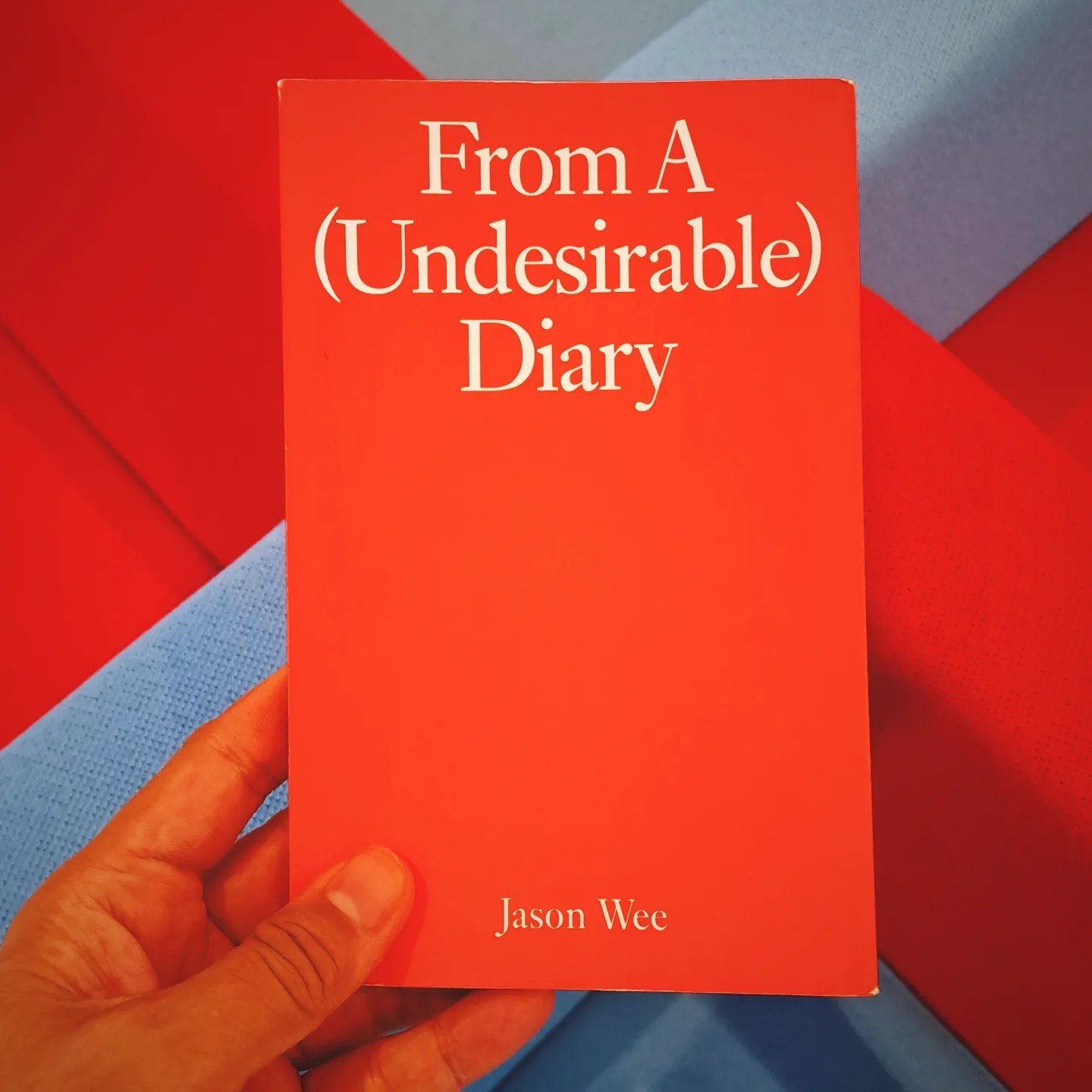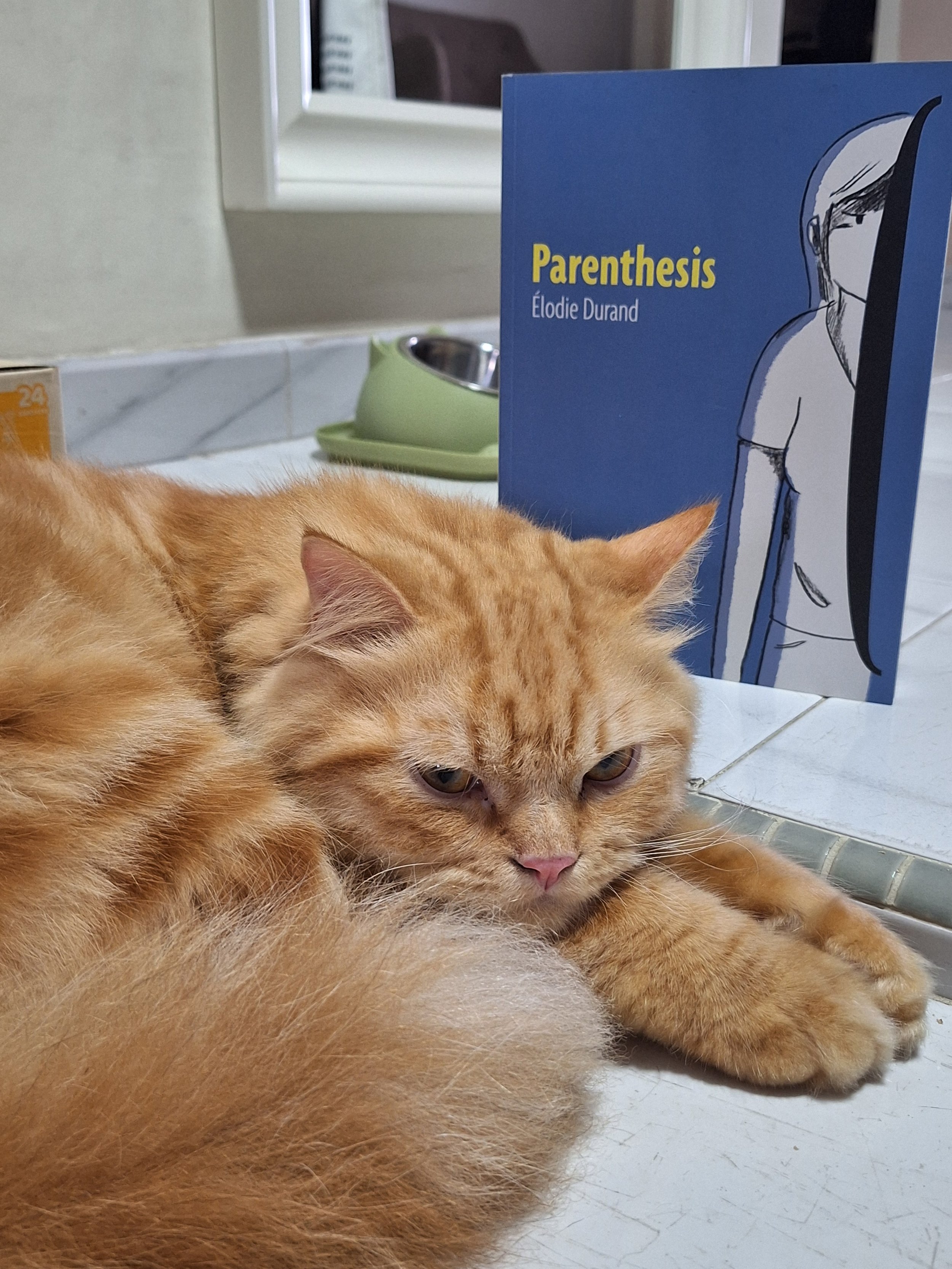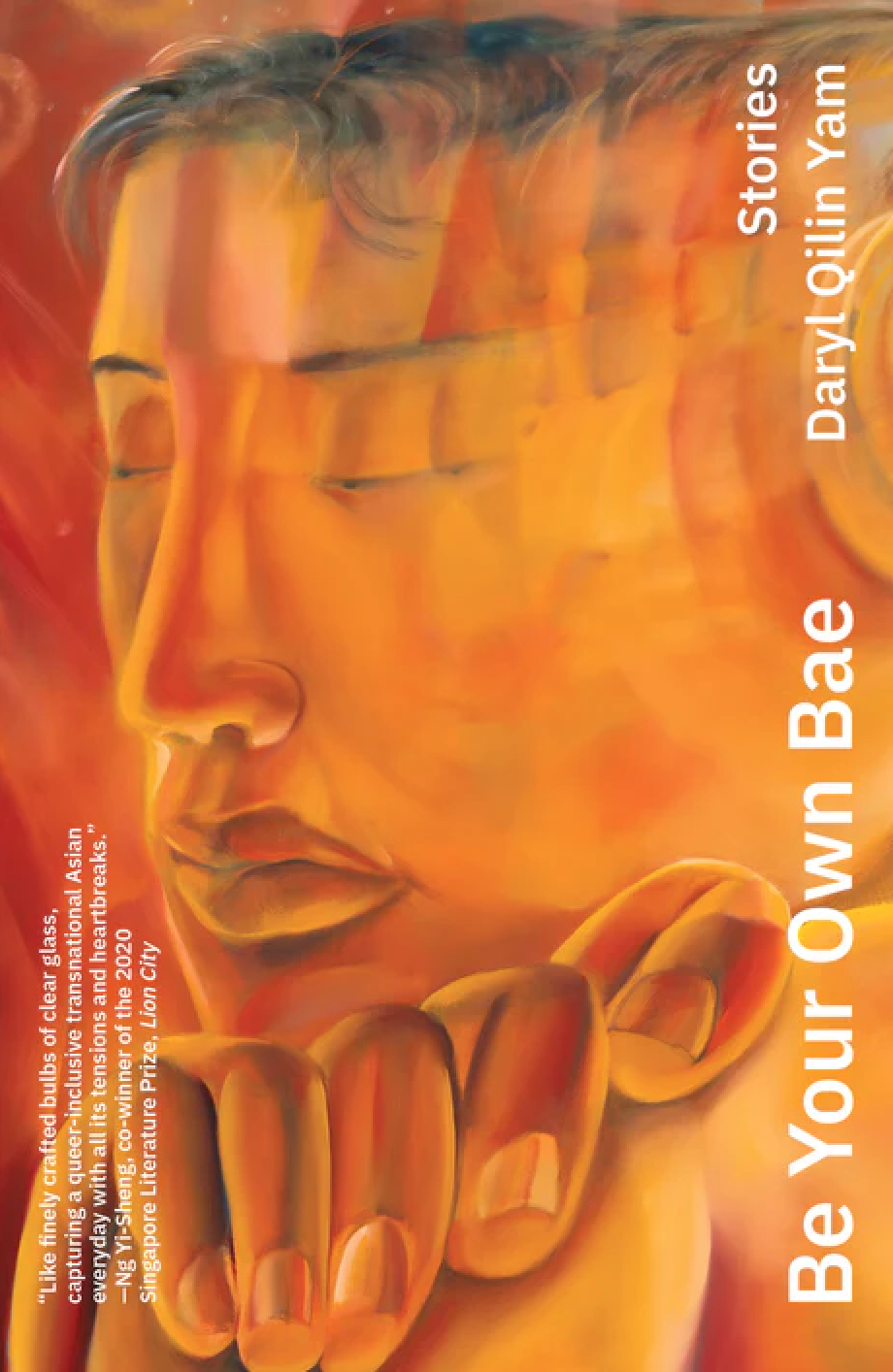#YISHREADS August 2024
By Ng Yi-Sheng / @yishkabob
This month’s column is dedicated to the poets of Southeast Asia! It’s my nod to SEAPoWriMo, a social media-based Southeast Asian poetry writing challenge organised by Sing Lit Station every August.[i] Prompts this year were supplied by Singaporean poetry open-mic Spoke and Bird, and Vietnamese artists collective Từ Từ.
As for the books I’m covering, their contents are urgently political, covering topics like censorship, climate change, colonialism, and the cruelties of dictatorship. They’re largely contemporary, mostly written in the 2020s, though some date back to the turbulent 80s. And they’re global, with many written by emigrants: a Filipina in Australia, an Indonesian in the UK, a Vietnamese now settled in the US, Myanmarese seeking refuge overseas—and even the Singaporean work was commissioned for exhibition in India.
Together, they subvert the notion of poetry as it’s been taught in Singapore schools: bourgeois, uncontentious, bound to tradition and/or oriented towards the West. Together, they’re proof that in Southeast Asia, poetry is power.
Picking Off New Shoots Will Not Stop the Spring: Witness Poems and Essays from Burma/Myanmar 1988-2021, eds. Ko Ko Thett and Brian Haman.
Ethos Books, 2022
Remember when the 2021 military coup broke out in Myanmar? Folks all over the world were shocked by the crassness and stupidity of the Tatmadaw, and inspired by the fierce citizen resistance of the Spring Revolution. And it’s kind of heartbreaking to realise that three years on, the military junta’s act of tyranny—coming in the midst of Covid, after eight years of democratic and economic liberalisation—has now been more or less accepted as part of the new normal.
This volume came out just after the coup, during the initial wave of fury and hope that came with the resistance. It's split into three sections, with the first centred on the year 2021: poets declaim the glory and tragedy of the moment, while essayists document the specific details of the crackdown and revolution. Particularly moving is NGO worker Ningja Khon's account of her harrowing experience disguising herself to avoid jail, then escaping into Thailand, then the USA as a refugee.
Section 2: 2020-2021 focusses on memorials of poets recently passed: martyrs of the revolution like K Za Win and Ket Thi, and also Lynn Moe Swe, who died of alcoholism. (His eulogist, being literary, calls it the Dylan Thomas syndrome.) But there’re also older, less revolution-focussed activist pieces in there by friends like Han Lynn and Thitsar Ni, plus a couple of gay-themed poems by Maung Saungkha.
And Section 3: 1988-2019 goes back further, looking at the history of poetry in Burmese revolution, particularly Ko Min Lu's iconic "What's Going On", published anonymously in 1989 and disseminated wildly, leading to actual prosecutions; also noting the strange misattribution of Ma Thida's translation of Rudyard Kipling's "If" to Daw Aung San Suu Kyi herself. A testament to how there's a whole tradition, not just of poets being political, but of poetry being embraced by the people as revolutionary.
Ultimatum Orangutan, by Khairani Barokka
Nine Arches, 2021
I’ve actually collaborated with this poet before: back in 2016, we were co-editors of Buku Fixi’s Heat: A Southeast Asian Urban Anthology. Since then, she’s settled in London, becoming one of the best-known Indonesian expatriate writers in English, while also doing impressive work in translation and disability-rights activism.
As for this book, don’t be fooled by its slimness or the bright zaniness of the cover and title—its contents are heavy. Through runaway metaphors, disorienting poetic structures, and personal memoirs of pain, it connects the devastation of Indonesian colonialism (both the Dutch in the East Indies and what Indonesia is doing to West Papua) to climate change, racism, ableism, pandemic, cultural loss, global patterns of genocide—yet with revolutionary anger rather than despair. As Claire Pollard writes on the back, it's "written against all forms of extinction."
You’d expect environmentalist poetry to be all soft tears and flower petals, but this is a blistering, active wound, refusing cliché (e.g. the orangutans of save-the-rainforest commercials, displacing the actual people of the forest, the orang utan), raging to heal itself. Personal picks include the duo of “i. natural history museum” and “ii. the event”, “in which i hypnotise a tiger”, “Klima(k)tik”, “Reverse Pangaea” and the “Terjaga” cycle.
From A (Undesirable) Diary, by Jason Wee
Dakota Books / Temporary Press, 2023
There wasn’t much buzz about this poetry collection when it came out last year, and now it’s been nominated for the Singapore Literature Prize! But then it’s got unconventional beginnings: it’s a reissue of a commission for the Kochi-Muziris Biennale 2022, then titled A Poem, A Fable, An Essay, responding to The Undesirable Publications Act, i.e. the history of book censorship as it evolved from 1938 to the great de-gazetting of 2015.
So this is documentary poetry, but less pedagogically specific than Mok Zining’s The Orchid Folios or Shawn Hoo’s Of the Florids. All the verses are first-person and intimate, featuring stray thoughts and conversations over hawker food with unknown dialoguists, but with no clear anchoring in facts and chronology—what exactly differentiates the periods of the three major sections of Then, Now, and Next, other than form?—and all paired with a subtle, carnal queer erotics.
I like it. Maybe more than Wee’s previous poetry collections The Monsters Between Us and An Epic of Durable Departures, partly because of the balance between mystery and focus—rather than fury against censorship, what comes across is a deep sense of loss, familiar to a lot of us aesthete middle-aged gay men: of the written/printed word obliterated without dignity, of ones we love grown dead and distant. And of course, the lyrical music of his writing, steady and sombre, with tricks of novelty (polyglossia, weird line breaks) kept to a moderate minimum. A mature poet’s work. The kind I’d like to write someday.
Flowers from Hell, by Nguyễn Chí Thiện
Translated by Hùynh Sanh Thông
Southeast Asia Studies, Yale University, 1984
This book's kinda legendary! The poet—once a dyed-in-the-wool North Vietnamese Communist revolutionary—ended up spending sixteen years in prison and re-education camps due his deviant beliefs, composing poems and memorising them so he couldn't lose them, hastily transcribing them during brief bouts of freedom. In 1979, he hand-delivered his manuscript of 400 poems to the British Embassy in Hanoi, whereupon he was imprisoned for another twelve years. Fêted by Amnesty International and Human Rights Watch, he finally managed to be allowed to emigrate to the USA in 1995.
It's honestly strange, reading such a classic Cold War text of Communism's failures today, when capitalism's really revealing its own rot. His unabated fury at Ho Chi Minh—he plays with the fact that "hồ" also means "fox"—is based not only in the sacrifice of freedoms but the persistent theme of hunger: the fact that the promise of postcolonial prosperity was not fulfilled. How do today's Vietnamese, who've experienced a rise in their standards of living, perceive his rants? Also, his style: often dependent on rhyming quatrains (useful if you've gotta commit them to memory)—is that now deeply old-fashioned?
Also of note: his invocations of Western perspectives, e.g. Bertrand Russell's support of the Vietcong. Reminds me of the angry debates we have over the Palestinian genocide today—"but Hamas is also bad!" Whose oppressions do we platform? Whose voices do we highlight? When current affairs become history, whose words do we remember?
Accidents of Composition, by Merlinda Bobis
Spinifex, 2017
A surprise of a book—not just to me, but also to the author. In an afterword, she explains how she began writing it unplanned in 2014 while touring the Grand Canyon, yielding her first poetry collection after four consecutive novels.
At first, it reads as unfocussed—there's travel poems like “Juniper Swaddling” about landscapes in the USA and artefacts in Spanish museums; historical poems like “Dream of Cloves” about Magellan's arrival in Cebu (the first step towards Spanish colonisation: he converted the royals before getting slaughtered by Chief Lapu-Lapu), nature poems like “Water Dragons” about fish and birds, activist poems like “The Lost Notebook” about Filipinos made homeless by Typhoons Haiyan and Reming and Syrian refugees after the civil war.
However, towards the end, the theme becomes clearer. She's interested in themes of migration, reminiscing about her early experiences in Australia, an immigrant surrounded by fellow immigrants and descendants thereof, including her Latvian-born, Nazi-surviving husband Reinis. It's as natural for humans to move as it is for animals, she says—but then she ends up including Magellan and Captain Cook in her list of migrants, even while acknowledging their murderous acts of colonisation.
Is this problematic, or is she deliberately complicating nationalistic narratives? As a Chinese Singaporean descended from coolies, I too have to admit that the line between migration and colonisation can be frickin' fuzzy.
Endnotes
[i] The most active community for SEAPoWriMo is here: https://www.facebook.com/groups/SEAPoWriMo. More info here: http://www.singlitstation.com/seapowrimo .
Ng Yi-Sheng (he/him) is a Singaporean writer, researcher and LGBT+ activist. His books include the short-story collection Lion City and the poetry collection last boy (both winners of the Singapore Literature Prize), the non-fiction work SQ21: Singapore Queers in the 21st Century, the spoken word collection Loud Poems for a Very Obliging Audience, and the performance lecture compilation Black Waters, Pink Sands. He recently edited A Mosque in the Jungle: Classic Ghost Stories by Othman Wok and EXHALE: an Anthology of Queer Singapore Voices. Check out his website at ngyisheng.com.








In Taiwan Travelogue, ‘twinned souls… are at once lost, but also found, in translation.’ A review by Eunice Lim.